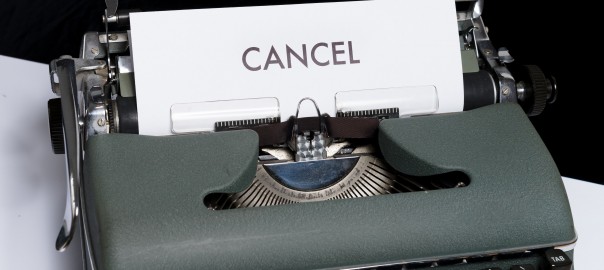Let’s face it: Rejection is a part of life, and there’s no way you can escape it, no matter how old you are. And for screenwriters, rejection can be crippling at times.
Countless screenwriters want to turn their scripts into movies and TV shows; they want to make a living by writing and selling scripts. So, with the expectation of putting scripts to film, they begin to realize that there tends to be only a few slots for Hollywood to fill. And, with a few slots to fill, screenwriters will become fearful of rejection.
But why?
As we explore this mental health issue a bit further, we’ll also discover how screenwriters can combat these negative feelings of sending a script out only to be rejected. And although rejection can hurt at first, we hope that writers can find it in their hearts to cope with the possibility of rejection and learn from their experience.
Why Does Rejection Hurt?
“Whether you’re a newbie, an up-and-comer, or the go-to person in Hollywood, you’re going to face rejection at some point,” says James Carter, a freelance writer at Simple Grad and Academized. “No one like to hear or see the word ‘rejected’ on their script. When someone like an agent, a manager, a producer, or a development executive passes on your script, it can be hard to confine in someone about it. And, you can easily see yourself as a victim, due to the rejection.”
Overgeneralizing
Overgeneralization is when you believe that one event represents a pattern. In other words, you might feel that outside forces are out to keep your script from seeing the light of sky. Here are some examples of overgeneralization when it comes to screenwriting:
- You say, “This script will never sell!” when the script is rejected.
- You read an article about producers ripping off writers, and then you might say, “Producers are out to cheat us writers!”
It’s best to listen to other people’s feedback on how you can make your script better. Also, don’t ever send out your first rough draft of your script. Rewrite as much as possible, so that you can polish your script and make it less vague.
You may want to participate in some form of public speaking or storytelling workshop, to help you practice responding to criticism well.
Don’t Disqualify The Positive
It’s important to allow encouragement in your life, as you deal with the rejection. Even if the encouraging comment was jotted on the rejection slip, take it as a good thing.
In the meantime, if you can think of anything positive to say or think about the rejection, try to keep from casting judgment right away. Most of the time, positivity comes afterwards.
“Catastrophe”
Catastrophizing refers to how many screenwriters react to rejection. When a screenwriter gets their script rejected, chances are he or she will blow things out of proportion and see problems bigger than what they are. Here’s what screenwriters might say when they face rejection:
- “Why will anyone love the script, if my agent doesn’t? This script is trash!”
- “I need to make my dream come true. This script is my one and only chance to do so!”
- “I don’t want to work a 9 to 5 job for the rest of my life. I want to make movies!”
Therefore, catastrophizing can lead to such negative thoughts, affecting your mental and physical health. Instead, try to have a positive attitude, even when the script is rejected. Positivity can help you overlook the rejection and give you the strength to move on.
Don’t Wallow For Too Long
If you should wallow, do so in a limited time frame. While wallowing is a healthy way to respond to emotional pain, letting it continue indefinitely can be destructive. At some point, you need to move on.
Use Distractions
It’s okay to pretend that a rejection never happened. How can you do that?
Once you send a script out, open a new document on the computer and write something else. Free write. Create a new outline. As you keep busy with a new project, you’ll find yourself too busy to worry about rejection.
Or, you can spend time on other activities to take your mind off the fear of rejection.
Get Back Up Again
“It’s important to get back up again, after receiving a rejection,” says Scott Dawson, a screenwriting blogger at Revieweal and Assignment Service. “Think of it like a boxing match. When someone punches you and knocks you down, you have to get up off the mat. If you get up, you’re telling your opponent that the match isn’t over, and that you still got a fighting chance. Therefore, try to have that mentality, when your script gets sent back to you with ‘REJECT’ stamped on it.”
Conclusion
We hope that these tips can help you be stronger, the next time you face rejection in your screenwriting. Remember: it’s not over. Get back up again. Write something new and better, and learn from your mistakes.
Katherine Rundell writes for both OXEssays and State Of Writing. She writes about screenwriting and editing. Also, she is an educator at Boom essays review.


